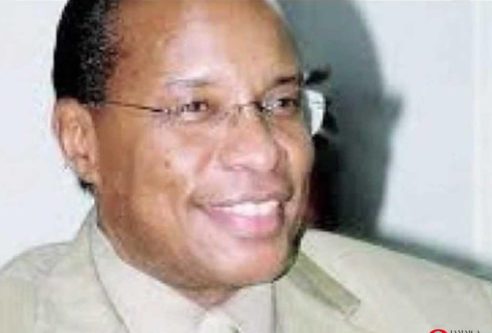(Jamaica Observer) The long-running case against Cash Plus boss Carlos Hill collapsed on Wednesday in the Home Circuit Court in Kingston due to the unwillingness of witnesses to testify.
The dismissal of the multiple fraud charges against the man whose unregulated investment scheme folded with J$10 billion owed to more than 40,000 investors left many Jamaicans wide-eyed and O-mouthed and elicited expressions of frustration from the Office of the Director of Public Prosecutions (ODPP).

“This is a demonstration of unenlightened self-interest leading to total disengagement in the process,” DPP Paula Llewellyn told the Jamaica Observer on Wednesday afternoon.
People, she argued, are “still hoping that, although they’re on the mountaintop screaming, ‘I want justice,’ they expect that somehow, telepathically, the jury and court are supposed to get the evidence”.
That cry for justice, she explained, “must filter down into the courtroom and stand up in order to get a conviction”.
The prosecution, Llewellyn said, had 16 witnesses, but on Wednesday only one turned up at court.
“Most of the witnesses have just disengaged from the process. The one witness came, but that one witness alone can’t make the case,” she said, explaining that given the nature of the charges the prosecution needed the majority of those witnesses to attend court and testify.
That point was corroborated by Hill’s attorney Deborah Martin, who told the Observer that even if the single witness had testified it would have been insufficient for the Crown to have proven the charges against her client “regardless of what they may have on file”.
Hill, who was arrested in April 2008 after his investment scheme collapsed, has been in and out of court since then as his trial, which started at one point, was subjected to several delays.
On Wednesday, Martin pointed out that justice must be delivered within a reasonable time.
“During this entire period of time Mr Hill has been on bail, reporting every Monday to the police, not able to travel. So it is not as though there had not been a consequence to him as well,” she reasoned, adding that they are aware of the anguish among the depositors.
Martin also said that an individual who was not scheduled to testify was in the court yesterday.
Llewellyn confirmed that report, saying that the man turned up to the court but when the Crown counsel checked her witness list his name was not there. The man, after being asked when and to whom he gave a statement, reportedly told the prosecutor that he would not give any statement to the police and asked that he be placed in the witness box to give evidence.
“She had to explain that it can’t go like that, because we have duties of disclosure, so you must give a statement,” Llewellyn related.
“So you find that a lot of people have a very myopic view of what they expect the justice system to do. They disengage but still want to get the best of it. It doesn’t work that way; it cannot work that way,” the DPP insisted.
“As prosecutors we feel that sense of frustration. People have to understand that we must have credible, reliable, cogent, admissible material to go before the court,” Llewellyn said. “And when I say go before the court, I mean that the prosecutor can’t read the witness statement and go into the witness box. That’s not how courthouse go. It’s the witness who has to come in there and testify.”
Llewellyn argued that part of the problem with a case like this is that Jamaica is a small society, and people are very easily ashamed.
“Some of it is people feeling foolish; they’re frustrated. In addition to that, you may have a situation where they don’t wish to be exposed; they don’t wish it to be known,” Llewellyn said in reference to the individuals who were attracted by Cash Plus’s promise of 10 per cent interest monthly on investments which financial experts had advised was unsustainable.
She said that over the past four years her office sent out subpoenas to witnesses for every court date. “The same team has been assigned to the matter over the last four years, and they try to speak to the witnesses and they [witnesses] will tell you, point-blank, they’re not coming” or the police go to the addresses they give to serve the subpoenas and find that they don’t live there.
“All of them want back their money at the end of the process, but they don’t understand. You try to explain to them that this is not a civil proceeding, it is a criminal proceeding, where the State is putting him before the court because of the breach of the criminal law, and at the end you can fine or confine, or both, if it is that he’s found guilty,” Llewellyn said.
“It’s a man-in-the-mirror moment. People must look at themselves in the mirror and take some of the responsibility.
“Any time we have successful prosecutions, and we have them in a variety of matters islandwide, it is usually based on courageous witnesses underpinned by good investigation,” she said.
Cash Plus began operating in 2003. However, in 2007 the Financial Services Commission served a cease and desist notice on the company and its accounts at National Commercial Bank were closed by the bank.




